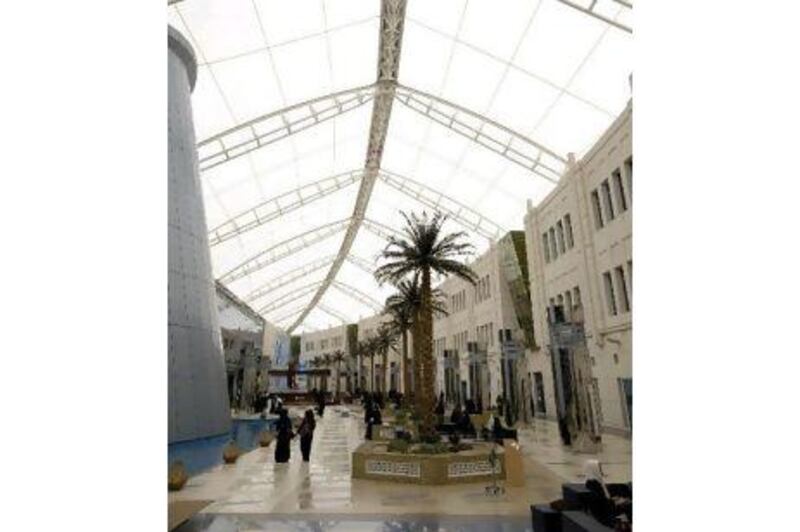DUBAI // Zayed University staff have voiced heated complaints at receiving 2 per cent pay raises after three years with no rise.
Several staff members said the rise would be their first pay increase in three-and-a-half years, despite a promised five per cent annual increase stipulated in their contracts.
"When we asked about our annual increment we were simply told they didn't do that any more, regardless of whether or not it was in our contracts," one staff member said.
Another said: "Class sizes have doubled in the past year. The ceiling used to be 18, but some classes have 32, and with so many more students that workload and the working day gets longer, yet there is no reflection in our salaries."
The rise has been backdated to last August to make up for the delay in a plan that had been under discussion for several months.
Meanwhile staff and faculty on new contracts, new hires or renewals have been told there will be no pay rises for the next three years.
At a meeting with the university's provost, Dan Johnson, last month, staff said they were told there was "no inflation in the UAE".
Mr Johnson said the pay freeze had been in place since before his arrival two years ago, while the Ministry of Higher Education and Scientific Research worked out a policy to come in line with other ministries.
He said his hands had been tied, but admitted pay had been a thorny issue for the duration of his tenure.
"Competition [for staff] continues to be challenging for us and we will continue to work with the Ministry of Finance and the Ministry of Higher Education and Scientific Research to address this," he said.
He was aware that the issue had bred discontent among staff, who made between Dh13,400 a month for junior academic staff and about Dh30,000 for professors, with housing provided. He acknowledged that salaries may not have kept pace with inflation.
Mr Johnson said salaries needed to be competitive globally, and while the university was "very close" to its chosen benchmark, Oklahoma State University, he admitted it was "very tough to go two or three years with no increases".
Last month, documents compiled by the Federal National Council revealed that Zayed University owed Dh33m to Dubai and Abu Dhabi water and electricity authorities (Dewa and Adwea) in unpaid bills.
The FNC report noted that the Higher Colleges of Technology, the largest federal university, gave pay increases to senior directors that exceeded its own salary limits, but no rises to its academic staff. Even this meant it ran a loss, the report noted.
The Colleges said they awarded the increases to senior directors with many years' service, based on a university decision not to limit their salaries.
Rory Hume, the provost of UAE University, said the university did not give pay rises other than for promotions, or when re-negotiating contracts.
"We don't have a scale or annual increment," he said. "We are different to the other institutions and I'm comfortable with that. What we have works for us as a research university."
The private sector appeared more aware of the need to lure top academic staff with higher pay and regular raises.
The University of Sharjah, for example, gives its staff an annual cost of living raise of five per cent - with extra increases for staff of up to 30 per cent in competitive fields such as medicine, law and business, according to the chancellor, Samy Mahmoud.
Nabil Ibrahim, the chancellor at Abu Dhabi University, said it awarded annual merit raises, with a comprehensive salary review every two years that resulted in increases of between five and 10 per cent.






